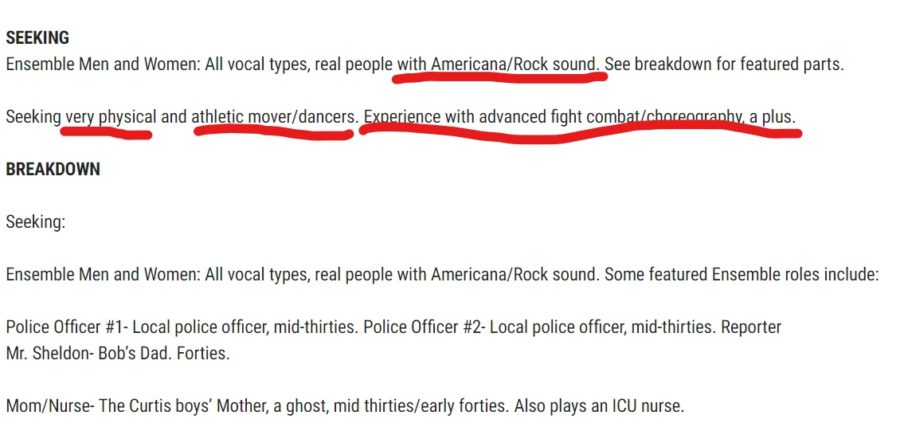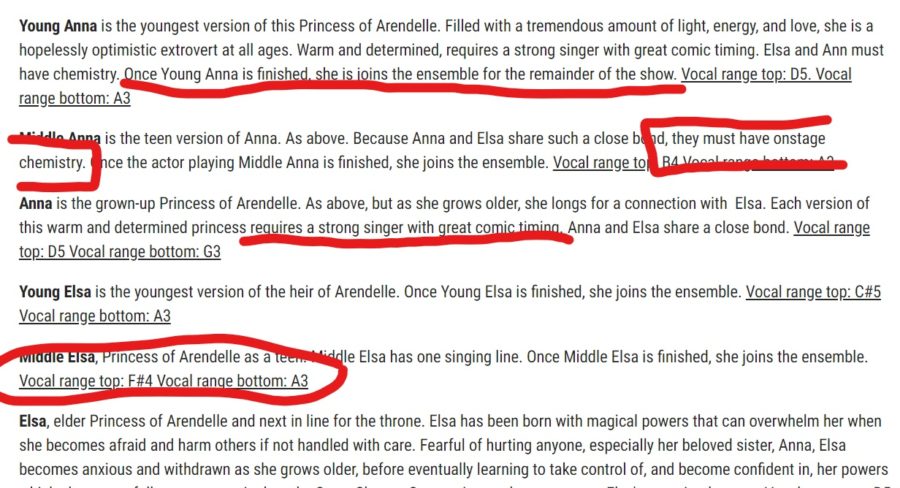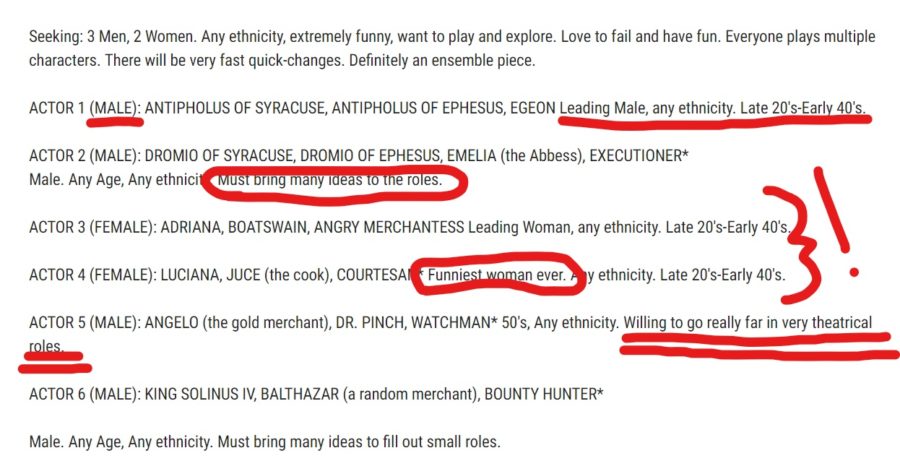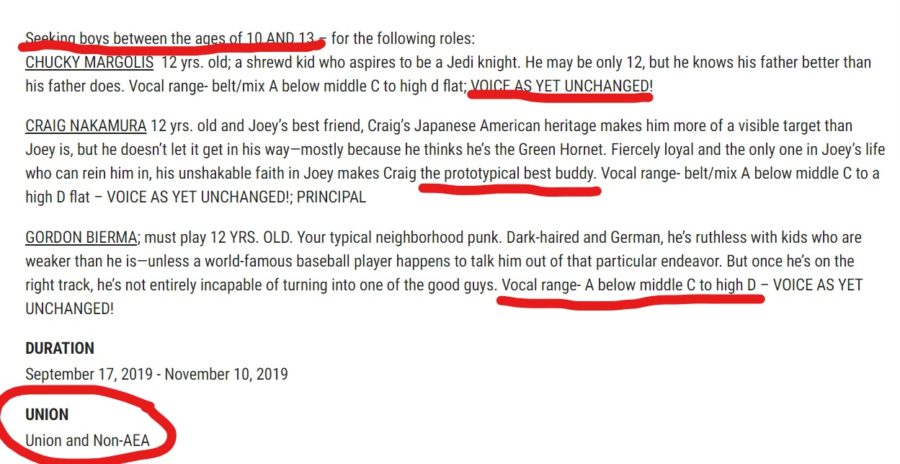Why:
Why are you auditioning for this show? Sure, you may love it, but are you suited for it? Do you really fit the specs? Even if you know the show, be sure to read the notes the producer includes in the breakdown; they are specific for a reason, or they are broad and vague for a reason. Here are a few examples of breakdowns pulled from Playbill’s public audition board.

Notice the specificity of vocal style, as well as the noted need for athleticism, dance, and fight choreography skills.

A few things pop out here. First, Young Anna will be in the full show as an ensemble member after she’s finished her Young Anna scenes. Secondly, Anna and Elsa must have chemistry – that means the producer is looking for two people who match each other well, energetically. Next, all the Annas must be strong singers and also have comic timing – that will inform which piece you will want to take into the audition. And while you may love belting “Let It Go,” you may need to let go of your dreams to play a particular role…for now. Be realistic about your vocal range and your type. (Are you really a Sven?)

This is clearly an ensemble show, assume the producer will be looking as much for attitude in the room, as they will be evaluating talent. Additionally, this seems to be a piece for character actors – not all actors have the facility to embody multiple characters in a single show. Sometimes, the gender of a role is not obvious, or the producer is choosing to cast outside the traditional gender casting. Note, too, the age range, of the characters, sometimes intentionally left very open. Breakdowns like this let me know that my monologue is only a minor component in the process, and that there are too many variables in casting to get too attached to the project or to take any casting decisions too personally. Be realistic about your range…for now. Keep training and expanding your range.

Here, the producer is willing to hire boys between the ages of 10 and 13, but they must all play 12 years old and not yet have had their voices change. Notice that Craig is “the prototypical best buddy;” you do know your type, right? Again, make sure you are solidly within the vocal range. And note that the producer is looking at Union and non-Union talent (not surprising, considering the age of the characters).
How:
How are you supposed to submit for the project? An open call may require you to arrive early, line up, sign-in, and be seen in order of arrival. Or perhaps you need an appointment to be seen. Sometimes, a producer asks to see a headshot and resume (and sometimes a reel or clips, in film), and then selected talent are invited to audition. How do you audition? Do you prepare a monologue, a set of sides, or will cold reads be provided on the day? Make sure you show up prepared with the appropriate materials
In Summary:
The best way to make a horrible impression is to show up clearly not having read the full details. Don’t be that actor. Breakdowns are not engineering schematics, but they do require careful reading. There is a lot of information available in the breakdown, including a contact for additional questions.
Contact me to schedule your individual acting lessons (Skype lessons available for non-local students). If you live near the Louisville, Kentucky area, look into my upcoming Masterclass 4-week Series or monologue & audition workshops.
